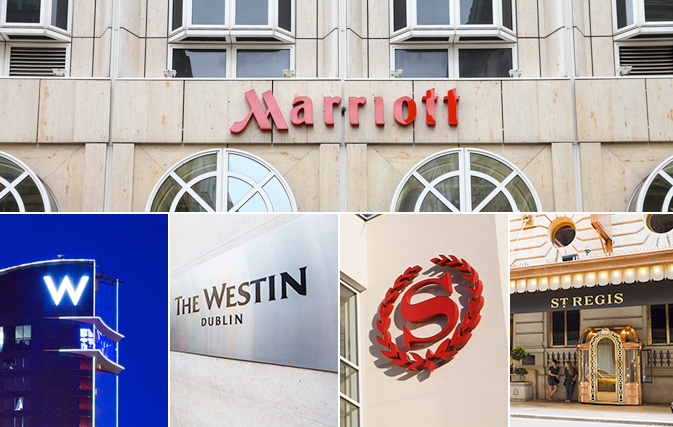NEW YORK — Marriott International has cleared one of its major hurdles on its journey to acquire rival Starwood and become the world’s largest hotel chain.
Shareholders in both Marriott and Starwood Hotels & Resorts Worldwide Inc. approved the $14.41 billion sale Friday morning.
The vote puts an end to a hectic month in which Marriott had to fend off a last-minute competing bid from China’s Anbang Insurance Group. After aggressively pursuing Starwood, Anbang suddenly withdrew its bid last week, clearing the path for Marriott.
The acquisition has already been approved by U.S. anti-trust regulators but still needs to clear authorities in the European Union and in China. The deal is expected to close in the middle of this year.
Holders of over 97% of Marriott shares present and voting at the meeting, representing over 79% of outstanding shares, voted in favour of a proposal to issue shares of Marriott common stock in connection with the transaction. Holders of over 95% of Starwood shares present and voting at the meeting, representing over 63% of outstanding shares, voted in favour of a proposal to approve the transaction.
At closing, Starwood stockholders will receive 0.8 shares of Marriott common stock, plus $21.00 in cash for each share of Starwood common stock.
Last year, Starwood – the owner of Sheraton, Westin and St. Regis brands – put itself on the market. The company has struggled to grow as fast as its rivals, particularly in “limited service hotels,” smaller properties that don’t have restaurants or meeting space.
Marriott has emerged as the winner in a deal that will create the world’s largest hotel chain, with 5,500 properties and more than 1.1 million rooms around the world. Such scale would give the combined company pricing power when negotiating commissions with online travel agencies such as Expedia and Priceline, as well as help it land more corporate travel contracts. The next-largest hotel company is Hilton Worldwide with 4,500 properties and about 735,000 rooms.
Shareholders in both Marriott and Starwood Hotels & Resorts Worldwide Inc. approved the $14.41 billion sale Friday morning.
The vote puts an end to a hectic month in which Marriott had to fend off a last-minute competing bid from China’s Anbang Insurance Group. After aggressively pursuing Starwood, Anbang suddenly withdrew its bid last week, clearing the path for Marriott.
The acquisition has already been approved by U.S. anti-trust regulators but still needs to clear authorities in the European Union and in China. The deal is expected to close in the middle of this year.
Holders of over 97% of Marriott shares present and voting at the meeting, representing over 79% of outstanding shares, voted in favour of a proposal to issue shares of Marriott common stock in connection with the transaction. Holders of over 95% of Starwood shares present and voting at the meeting, representing over 63% of outstanding shares, voted in favour of a proposal to approve the transaction.
At closing, Starwood stockholders will receive 0.8 shares of Marriott common stock, plus $21.00 in cash for each share of Starwood common stock.
Last year, Starwood – the owner of Sheraton, Westin and St. Regis brands – put itself on the market. The company has struggled to grow as fast as its rivals, particularly in “limited service hotels,” smaller properties that don’t have restaurants or meeting space.
Marriott has emerged as the winner in a deal that will create the world’s largest hotel chain, with 5,500 properties and more than 1.1 million rooms around the world. Such scale would give the combined company pricing power when negotiating commissions with online travel agencies such as Expedia and Priceline, as well as help it land more corporate travel contracts. The next-largest hotel company is Hilton Worldwide with 4,500 properties and about 735,000 rooms.

